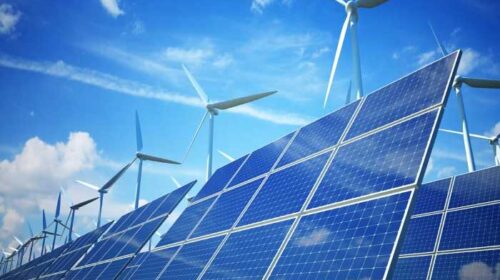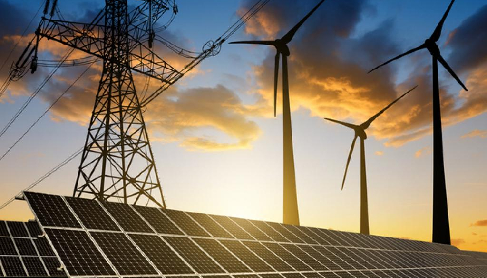The Businessmen Panel (BMP) of Federation of Pakistan Chambers of Commerce and Industry (FPCCI) on Sunday called for early completion of renewable energy projects, besides removing the hindrances to avoid delay, as the execution of several wind, solar and hydel power projects are getting delayed.
The Businessmen Panel (BMP) Chairman Mian Anjum Nisar warned the government of the impediments including land acquisition, financial flows, Covid-19, and emerging security scenario, causing delays and cost escalations to the Diamer Bhasha and Mohmand Dams, affecting the timeliness set for completion of the projects.
Stressing the need for more renewable projects in the country, he said that almost all power projects initially suffered because of the Covid-19 outbreak in China that affected mobilization and was followed by lockdowns in Pakistan and subsequent standard operating procedures for operations of transport and factories in the country.
He reiterated the demand of speedy completion of those projects as early as possible. Moreover, the financial flows were also the issue that required to be focused on to ensure that recovery plans to compensate for the lost timelines.
FPCCI former president said that renewable energy sources including water, wind and solar were getting key focus on the global level as they were sustainable sources of energy at affordable cost. He said the installed capacity of solar and wind power across the world have witnessed over 5000 percent and over 650 percent increase respectively, but in Pakistan due attention has not been paid to this important source of energy as yet despite the fact that our economy has suffered huge losses due to energy shortage.
Mian Anjum Nisar called upon the government to focus on renewable energy as the country has tremendous potential to generate power through these sources. The renewable energy would bring multiple benefits to the economy as it would reduce cost of doing business, promote industrialization, encourage investment, create plenty of new jobs and enhance exports.
He also urged the government to allocate adequate funds for construction of more reservoirs in the upcoming budget, as new dams are needed for Pakistan, not only to generate cheap electricity but also to avert the threat of food security, he said. The policy makers will have to understand that the economic growth lies in the construction of water reservoirs which are a cheap source of electricity, he added.
The government will have to create consensus for early construction of water reservoirs, he said, adding that the rising population could create severe food security challenges in near future. We need to build water reservoirs including Kalabagh dam as it will bring a huge part of land under cultivation which is currently lying idle due to lack of water, he said.
Pakistan needs to feed the ever growing population and the only solution to overcome this challenge is to build the Kalabagh dam, he said.
He said that being an agrarian economy, Pakistan cannot afford to waste huge amounts of water resources which are depleting fast. Shortage of water has not only caused undue damage to the agriculture sector but the manufacturing sector is also affected by this phenomenon.
He said that the government should re-energize the Alternate Energy Development Board (AEDB) and accord top priority to renewable energy as renewables offered wide-ranging strategic benefits including provision of cheap and environment friendly energy, industrialization, creation of plenty of new jobs and enhanced economic activities across the whole value chain.
He said that many European countries were working to replace coal and nuclear power plants with renewables while Germany and Denmark have already achieved the capability of meeting peak-load demand from renewable energy under the right weather conditions. He said even Gulf countries with abundant oil and gas reserves were making big investments in renewables and Saudi Arabia has planned to setup solar and wind energy projects of 9.5 GW by 2023. He said that China has emerged as the world leader in renewable energy in terms of investment, installed capacity and manufacturing and export of products and Pakistan has good opportunity to learn from China for enhancing the share of renewable energy in its energy mix.





